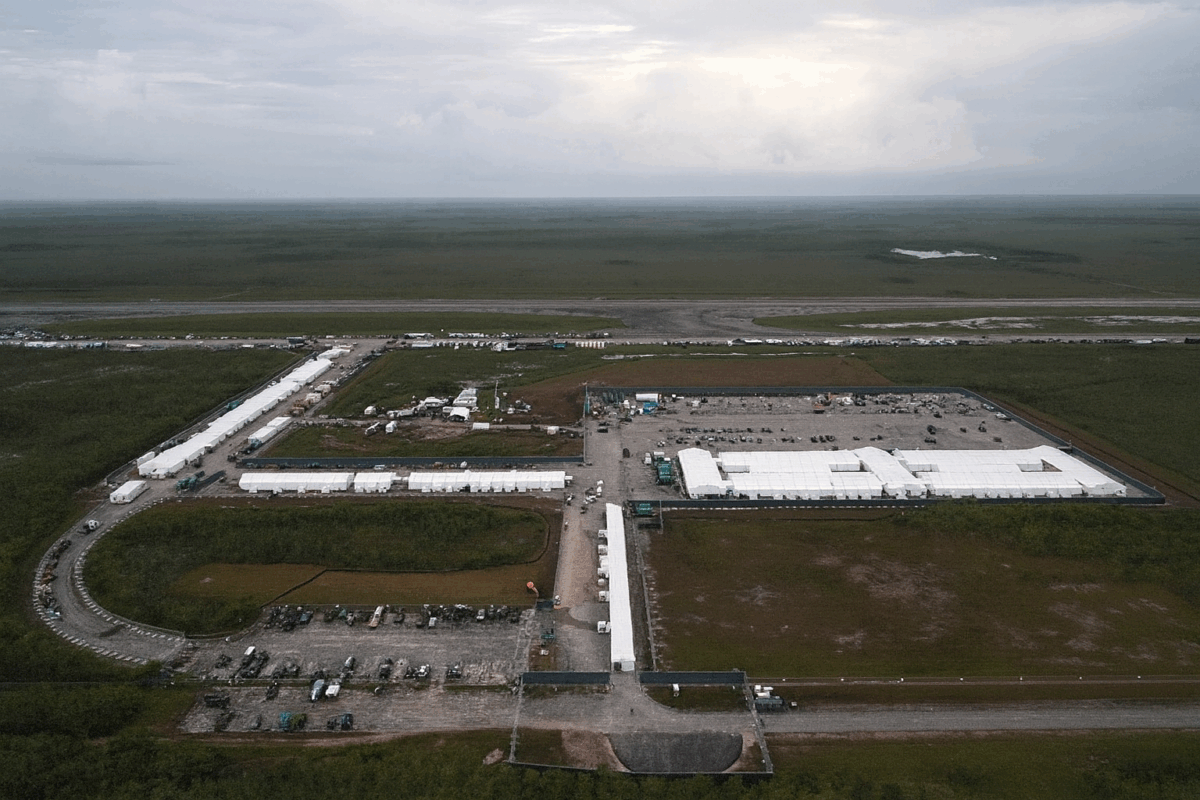A major legal battle is unfolding in Florida after a federal judge blocked the controversial “Alligator Alcatraz” detention center. This facility, built in the Everglades, was intended to house immigrants but quickly drew criticism from environmental groups, Native American tribes, and human rights advocates. The court decision marks a temporary victory for those challenging the project under the National Environmental Policy Act (NEPA).
Why the Judge Blocked the Facility
The ruling prohibits authorities from admitting new detainees and orders the dismantling of temporary structures such as fences, generators, and waste systems within 60 days. According to the judge, the U.S. and Florida officials failed to conduct proper environmental reviews before building and operating the center. The Everglades is a fragile ecosystem, and campaigners warned that the project threatened wildlife, water quality, and the rights of the Miccosukee Tribe.
Environmental Concerns in the Everglades
The Everglades is one of America’s most unique wetlands, home to endangered species such as the Florida panther and the manatee. Environmental groups argued that constructing a massive detention center in this area would damage the natural habitat. They also raised alarms about pollution from waste management and heavy infrastructure. By citing NEPA, the court stressed that any project of this scale must evaluate environmental impacts before moving forward.
Native American Rights and Legal Challenges
Another important aspect of the case involves the Miccosukee Tribe, whose ancestral lands are directly affected by the detention center. Tribal leaders stated that the government failed to consult them and ignored the cultural significance of the region. The judge agreed that their concerns deserved serious consideration and that rushing construction without review violated federal law. This recognition represents a broader acknowledgment of tribal sovereignty in U.S. courts.
Florida’s Response and Appeal
Florida officials, supported by some federal agencies, immediately filed an appeal. They claimed the project was a state initiative and not subject to NEPA. However, the court noted that both state and federal resources were used, making the law applicable. While the appeal is pending, the injunction remains in place. This means “Alligator Alcatraz” cannot expand, and detainees already inside may need relocation in the future.
Broader Implications for Immigration Policy
The ruling has wider consequences beyond Florida. It signals that immigration detention projects must comply with environmental and cultural protection laws. For advocates, the case sets a precedent that human rights and environmental justice cannot be overlooked in the name of enforcement. For opponents, however, the decision represents a barrier to managing migration flows at the state level.
The federal judge’s decision to block Florida’s “Alligator Alcatraz” detention center is more than a local dispute. It highlights the intersection of immigration, environmental protection, and Native American rights. As the appeal moves forward, the case will continue to shape the national debate over how far governments can go when building detention facilities in sensitive areas. For now, environmentalists and tribal leaders celebrate a crucial—if temporary—victory.


